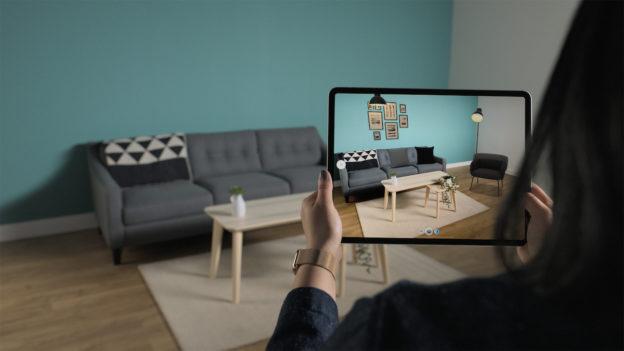AR applications and devices are one of the major focuses of Apple at the moment. The company has shown its interests in AR technology development and considered that AR wearable glasses may replace smartphones in the near future. Rumors about Apple to reveal its AR smart glasses soon have been going on as well.
Apple launched the new iPad Pro adopting LiDAR Scanner and releases the latest ARKit 3.5 which enables app developers to take advantage of the new LiDAR Scanner to capture 3D features of the surrounding environment. ARKit 3.5 also includes instant AR objects placement, improved motion capture and people occlusion for more diverse applications.

(Image: Apple)
The LiDAR Scanner adopted iPad Pro is regarded as the first product for Apple to march towards the AR field. It is also expected that the new iPhone scheduled in September 2020 will equipped with full 3D sensing solution to further expand Apple’s AR equipment.
Meanwhile, AR smart glasses are considered the target product which Apple has continued the development. Apple is reportedly progressing its AR smart glasses with optical sensor developers. In addition, the report of MacRumors noted that the leaked code from an internal version of iOS 14 indicated Apple’s testing on its new AR/VR headsets.
Based on the recently unveiled patents of Apple, the company is likely to build their AR smart glasses based on Micro LED technology. Micro LED with high brightness, high resolution and low power consumption may enable flexible design and light weight wearable products.
According to Bloomberg’s report in October 21, 2019, Apple might introduce AR headset that pairs with the new 5G iPhone or other portable devices. Since Apple introduced the new iPad Pro with LiDAR and technology is also anticipated to come with the new iPhone, these devices may be supporting Apple’s smart glasses in the further to intensify advanced AR applications.












